|
The Breadcrumbs widget will appear here on the published site.
 I’ve spent a surreal amount of time wondering how writers balance multiple projects. Especially unpublished authors who don’t have to meet a publisher’s deadline for each project. It seems like as soon as I get grounded in an idea that I’m fired up about, a new idea comes along that throws my brain all out of sorts. Some people call this “shiny new idea syndrome” and for me, that term sums up the issue perfectly.
Case in point: I recently started drafting a nonfiction how-to manuscript that I’m excited about. I’m treating the project as an experiment since I’ve never written a manuscript this long, but I think with editing it could be a book I’m proud to publish. I outlined it weeks ago and let the idea simmer for a while. Then a few days ago, I started drafting. Guess what happened today, literally 5 days after I started the project? I was reminded that April is National Poetry Writing Month. I’ve always wanted to participate, and I view poetry as my home genre. I am suddenly more excited about potentially completing NaPoWriMo than I am about the how-to book. Even before I did some googling and learned about shiny new idea syndrome, I knew that this new idea was going to be a distraction. That’s not to say I can’t give it a shot but diving into 30 days of poetry will certainly make me question whether the how-to book should be a priority. True, I could probably draft a poem pretty quickly each day, and I should be able to continue writing my nonfiction manuscript at the same time, but the point of National Poetry Writing Month, at least for me, is not to write down 30 half-baked poems. If I undertook the challenge, I’d want to revise my drafts over the course of the month alongside writing the daily poems. That’s a time and energy commitment. One that I’m not sure I could reasonably sign up for knowing that I’d also be writing a book. Yes, I overcomplicate things. I should just choose. The thing is, I don’t like thinking I have to pick a project or even a genre to focus on for a season. I’ve been writing long enough to know that this is how my brain works. I stupidly try to juggle a dozen things at once and drop all of them out of exhaustion. Sometimes I spend all my time trying to figure out which projects to juggle in the first place and go weeks without writing consistently. I don’t know what the answer to all of this is. I see committing to a project as a sure-fire way to finish what I start. There’s no shortage of all the ideas a creative person could dream up over time, so if I continue idea-hopping I could potentially spend the rest of my life jumping from project to project without finishing one. I know that sounds dramatic. After all, I’d probably finish one of those projects eventually. My point is that once you get a shiny new idea, the previous one seems a little dull in comparison, and if the next shiny new idea comes along in a few weeks and your first shiny idea begins to look dull too… The old ideas begin to get buried in the pile. Then what? Kristen Martin, an author who I’m subscribed to on Youtube, made a video about balancing multiple projects that I found pretty helpful. She suggests “tapping into your writer-brain” on a day to day basis to see which project you feel up to working on that day, but only picking one project per day. I like this approach. I translate it as taking a moment to listen to my creative side and see what she wants to write today. Since the only deadlines I have to work on are my own, this approach could help me be productive without putting pressure of me on to finish one project as soon as possible. Kristen Martin also discusses “compartmentalizing projects” which I take to be a form of prioritizing. Once I’m rolling on a project and feeling good about it, I need to compartmentalize any ideas for other projects and save them for later. I should write them down, maybe take some notes in a new document, but then I need to put them away and make them wait their turn. I shouldn’t give up on my current idea or put it on hold unless I’m truly stumped or just don’t think I can make it work anymore. This seems basic to me, but I have such an impulse to do start on ideas as soon as they come to me. Kristen’s advice is definitely helpful, and I’ll have to see how it fits into my own writing life over time. I trust that I can learn how to manages the ideas coming into my brain and the writing going out. It’s a matter of practice. At the beginning of writing this post, I was tempted to drop my how-to project and start writing some new poems for National Poetry Writing Month, but I guess rehashing my dilemma has made me realize that I’d much rather complete a project than hop around. So I’ll keep trudging along on my nonfiction idea, and before too long it’ll be a full manuscript. I know that consistently writing every day is what I need to focus on in this period of my writing life, and I am committed to that. Do you struggle with project hopping or shiny new idea syndrome? I’d love to know what’s helped you and what your experience has been like. The Blog Tags Widget will appear here on the published site.
Tags:
The Recommended Content Widget will appear here on the published site.
The Breadcrumbs widget will appear here on the published site.
“… a writer is the one who puts his arse in the chair when the last thing he wants to do is have his arse in the chair.” – Colum McCann, Letters to a Young Writer Telling people you’re a writer, discussing your idea for a story but never writing it down, watching a third episode on Netflix and later saying to yourself, There’s no extra time in my schedule to write! talking about writing without actually writing, fantasizing about the day when you’re famous and doing book signings, reading books about writing, criticizing popular authors and jabbering endlessly about how those writers make no contribution to the literary world while you continue to not write anything publishable whatsoever, complaining loudly outside your writer’s workshop that no one “gets” your work, refusing to revise, sharing listicles about things *only* writers understand, complaining about your workload while refusing to shift anything superfluous around so you can actually write, spending your designated writing time tweeting about being a writer, glorifying [insert canonical author’s name] while you trash modern day writers, procrastinating on writing because you’re afraid you won’t be good at it, trash talking presses that rejected you, complaining about how no one appreciates “good” art anymore, using your writing desk as a clothes hamper, tweaking your blog without ever publishing posts, playing with the font, wasting time thinking of a title before you actually write a single word, accumulating “writing” notebooks that you never fill with notes or write in, sitting in a coffee shop with your laptop open to write but scrolling through Buzzfeed instead, laying down at night and dreaming about the day you’ll hold your own book in your hands without actually ever writing.
A short list of things that will make you a writer: Putting words on a blank page. The Blog Tags Widget will appear here on the published site.
Tags:
The Recommended Content Widget will appear here on the published site.
The Breadcrumbs widget will appear here on the published site.
Our Number Days by Neil Hilborn is a collection of poems dealing with grief, mental illness, and the realities of love. Neil Hilborn is a Button Poetry writer who has competed at spoken word competitions all over the U.S. Most recently, he traveled on his own tour reading his spoken word poems to live audiences and promoting his new book. Our Numbered Days is his first full-length poetry collection. The Good Stuff: Neil Hilborn does a great job of presenting complex emotions genuinely. If you’ve seen this book on twitter at all, you know that people play up how sad the poems are. Those comments have merit, but I think it short changes the poems to say they’re only sad. Hilborn’s writing style makes me feel like he’s always choosing to be honest with me as a reader even when the details of the situation he’s referencing are clearly presented from his point of view. In other words, he’s good at speaking his truth but leaves the door open for interpretation. In my mind, I can hear Hilborn saying the poems aloud, but I can also hear myself saying them. There were a lot of great lines that I connected with profoundly. Many of the poems read in multiple tones because Hilborn integrates complex emotions throughout, and I like the duplicity of that. For instance, I read lines such as “Life on earth will in some ways / be easier. I will not have to return / her phone calls.” From “Our Numbered Days [1]” with a sense of both mourning and relief. I like that those two emotions are being allowed to coexist without one being edited out to play up the other. Life is like that too – we often experience multiple conflicting emotions at once. I love that Neil captures that so well throughout the collection. The epigraphs set the tone well for each piece. In several poems a half dozen or more epigraphs appear before a short poem which allows outside voices (of the people being quoted) to influence the piece. It seems like Hilborn’s way of giving us context about what he was feeling and thinking about while writing without oversimplifying it or detracting from the main story of the poem. The epigraphs are a way of zooming out from the poem while bringing the reader closer to its meaning. That probably sounds ridiculous to some people, but in my head, it’s like unraveling and raveling a piece of yarn each time I read one of the epigraph’s in this collection. It had a strong effect me as a reader. Favorite poems “MSP PHI LGA ALB PHI MSP” “Ballad of a Bruised Lung” “Chitin” “The Red Sheets” “Liminality” Critiques: There are several poems throughout the piece which are all titled “Our Numbered Days.” I liked the thread that these poems carry and the way they further developed the title; however, it really annoyed me that they weren’t numbered or distinguished in any way from each other. Every time I came across one, it pulled me out of the book and made me wonder if I had accidentally scrolled back to the beginning of the eBook (I was reading on an iPad, so it wasn’t as easy to recognize where I was in the book right away). It happened several times before I learned to ignore that feeling and stay engrossed in the book. I really didn’t like being pulled out of the book in that way.
There were a few poems that left me wanting more. It’s normal to find a few poems I don’t care for in a given collection, so this isn’t a huge deal, but I wish I’d walked away from those poems with a line or two to think about. “The News Anchor is Crying,” “I’m Sorry Your Kids Are Such Little Shits and that We Are in the Same Zen Garden,” and “Parking Meter Theory,” are examples of poems that left me feeling a little unanchored, a little insecure. I wanted to have more footing in the story of these poems to go along with the images and the voice. Overall, I thought the collection was enjoyable and found some nice lines to dig into. I consider poems featured by Button Poetry (like many of Neil’s poems are) to be accessible reads for anyone trying to get into poetry and learn more about the craft. If you like poetry that focus on the narrative first, these will be enjoyable poems for you. If you’ve seen any of Neil Hilborn’s performances on YouTube or read Our Numbered Days, be sure to leave a comment so I can hear your thoughts! The Blog Tags Widget will appear here on the published site.
Tags:
The Recommended Content Widget will appear here on the published site.
The Breadcrumbs widget will appear here on the published site.
I’ve been writing for most of my life, but within the last two years, I’ve been published for the first time in a few literary journals. I’ve made a couple mistakes that make me cringe as I look back on them, but we live and learn. I’d like to share three things you can do to prep your poems before you submit, and hopefully you can avoid some mistakes I made.
1. Run it through a grammar check. It doesn’t matter how much you’ve edited. You’ve looked at your work so many times that your eyes might be missing something. Take a few extra minutes and pop your poem into a grammar check like Prowriting.com and double check for any simple errors like your/you’re mix-ups or grammar mistakes like plural vs. singular usage. It doesn't take that long, and if you look at your poem a few weeks down the road and realize it has an embarrassing typo in it, you're going to wish you'd taken the extra step and used a grammar check website up front. Granted, a grammar checker is going to flag a lot phrases in a poem that are correct because we often play with wording in poetry, but it’s easy to spot when the computer is flagging a sentence fragment (usually a line break) or when it’s flagging an issue with correct pronoun usage. I stand by this rule because I know from experience how frustrating it is to send your work out to five lit journals, get rejected by all of them, and find out later there were typos in my poems that I had somehow never caught in my dozens of revisions. If your work has a lot of typos in it, you’re making it easier for editors to write you off because it seems like you’re not really trying. In some cases, your writing may withstand the test despite having several typos, but why risk it? Run it through a free grammar check and then let the editors decide. 2. Double check the submission guidelines. You don’t want to look like you weren’t interested in the journal and didn’t take time to check that you formatted your work as per their request. You don’t want to submit and then find out that the journal is actually publishing a themed journal that your work doesn’t fall under. You don’t want to waste three months waiting for a reply only to get a rejection because you didn’t do enough research up front. Editors know that not every writer who submits their work is going to be super well acquainted with the publication, but they do expect you to look at what’s available – submission guidelines, about pages, and sometimes previous issues posted on their website - and submit with that information in mind. 3. Copyedit yourself. Copyediting for a poem means making sure the information is consistent throughout. This is something a grammar checker won’t catch. That means if the beginning of your poem begins with night time imagery but ends with imagery that references the daytime, you may want to make sure that the inconsistency is intentional. I say this from experience. If you find inconsistencies in your poem and decide you like the poem that way, then no big deal, but double check yourself to make sure you didn’t just accidentally change the time of day during a rewrite. It’s a pain in the butt to realized you submitted the poem to multiple places with errors, and even if the poem is accepted, it’s embarrassing to correct mistakes after the fact. Plus, once it goes into print, it is final, and sometimes due to deadlines, poems are printed with typos intact because proofing was done so quickly. Again, I’ve seen it happen. Copyedit yourself so you don't find an embarrassing typo in print later! These are three tips I try to live by when it comes to sending my work out! I hope it gave you some useful ideas about prepping your work for publication. If you have more tips, tell me about them in the comments so we can chat! The Blog Tags Widget will appear here on the published site.
Tags:
The Recommended Content Widget will appear here on the published site.
The Breadcrumbs widget will appear here on the published site.
Today’s post is probably going to get hokey-pokey pretty fast, so this is your fair warning.
This phrase is on my mind: “Travel lightly and deeply.” I’m currently reading If You Feel too Much by Jamie Tworkowski, which is where I read these words for the first time. I couldn’t quite let them go once I’d read them. Not in a stuck-in-my-head kind of way, but in a I-need-this-idea way. Sometimes I need someone else’s words to sum up what I’m feeling before I can ever fully explain it myself. Sometimes, other people’s words are a bridge to understanding myself as much as my own words are a bridge to understanding myself. One of the reasons I write is to be understood and known. That’s always been the appeal to me, and that’s why I know I make so much more sense on paper. I use books to understand others, and I use writing to understand myself and be understood. When I speak audibly, I almost always fail at expression. It takes hours of thinking over a subject and rehearsing my own made up lines in my head to explain myself coherently to anyone else. During the last few years, I’ve put a lot less effort into that preparation because it’s exhausting. Do I really want to spend my life in that limbo when it’s so much easier just to make myself known on paper? Time is too precious. All of the above feels necessary to say, but it also feels so necessary to look at that sentence more closely. The line, “Travel lightly and deeply.” speaks to me, but it also sounds like a dream, something to aspire to. It’s hard to imagine that it could be something I start doing today without preparation, but there’s a part of me that thinks it’s supposed to be that simple. I have a tendency to over complicate things, and I have a suspicion that, while this phrase holds a lot of weight, it may not take that much dissecting to understand. Travel lightly: my first thought in response to these words is that I should give away all my belongs and only hold on to the few things that are near and dear to me, but I think this phrase means something much deeper (and who knows why I have this fascination with getting rid of things. That idea seems to glom onto any even remotely philosophical idea even have.) “Travel lightly” on a deeper level means “lay down your burdens.” Let it go. I struggle with this. I like to hold on to things, especially negative energy, and it’s so bad for me. I still do it. I hate the idea of laying down a thought before it’s fully processed. Before it is dissected, and understood, and mined for its value. But that thinking relies on a falsehood - you don’t learn from bad circumstances by dwelling on them. You learn by accepting them and staying open to learning. I’ve never once learned anything while I was angry about my situation and riling up my attitude every five minutes because I’m prideful and was born with a chip on my shoulder. Traveling lightly, in short, is about accepting life as it is while knowing that brightness and light are in even the bad places. Travel deeply: give importance to meaning. Whatever is meaningful and good to me is what I should dwell on. Dive in, and experience life in whatever way I think will uncover meaning for me. Obviously, I wouldn’t encourage anyone to do something damaging just for the sake of experience, but by definition we’re talking about making our lives better here, so maybe that goes without saying. That word “deeply” just strikes me so much as the meat of life, the purpose. I don’t believe any of us were made shallow. The spiritual part of us that I believe in creates too vast an expanse within ourselves for me to ever think anyone is incapable of depth. The deep, inner part of our lives is one of the most meaningful aspects of human life, and it’s where meaning itself is derived. We go into our deep, inner space when we think about what’s meaningful to us. We’re in our deep space when we’re acting out our passions and being intentional with our lives. That deep space is critical, and we should not neglect time spent with it. I want to learn to be alone with my thoughts a little more often. I want to learn that I don’t have to chase the next idea, the next thought, the next piece of media to consume just to make sure I’m moving forward or not bored. I don’t have to always be moving forward. There is a time and a place to sit, be quiet, and look back. This is the part when I realize the yin and yang of this whole idea: to go lightly and to go deeply through life are in some ways opposites, but married together they mean so much more. Their meanings rely on each other. You can’t truly go lightly without digging in and learning from the past because it’s necessary for acceptance, and there is no use in sitting down to contemplate the past if you don’t stand up and leave the burden on the floor, going lightly away from that place. A yin. A yang. These are just some thoughts that are on my mind today. I hope you can find some kind of meaning in them. I hope you’re encouraged or inspired or thoughtful after reading them, but no matter what, just know that your life matters and you can make it matter to you. Keep your perspective on the light and the deep and reach out to others when you need to. If you have thoughts, please share them in the comments, as always. Thanks for reading this far. The Blog Tags Widget will appear here on the published site.
Tags:
The Recommended Content Widget will appear here on the published site.
The Breadcrumbs widget will appear here on the published site.
5 Places to Submit your Poetry2/24/2018 It can be difficult to find literary journals to submit your writing when you're first starting out in the publishing process, and it can be just as hard when you've been submitting for a while and feel as if you've exhausted your options. I want to share a quick list of places you can send your poetry. These journals either have cheap reading fees or no fees at all and accept submissions year round. I've written posts like this before that focused on literary journals and magazines that accept submissions from multiple genres, but today, I wanted to do a post specifically for the poets out there looking for places to submit. Let me know in the comments where you've submitted your writing lately, or whether you're just starting the journey to publication! 1. Conduit Asks for 3-5 poems. Looking for, “… unpublished poetry that demonstrates originality, intelligence, courage, irreverence, and humanity.” $3 fee. Submissions accepted year-round. 2. The Same Send up to 6 poems. “We believe that the more things change, the more they stay the same…” Exclusively publishes female writers. $3 reading fee. Submit year-round. 3. Ellis Review 3-5 previously unpublished poems. “We believe the best poems often share several characteristics that can be summed up in intentionality.” No fee. Submit year-round. 4. Rascal Send up to 7 pieces, max 15 pages (accepts poetry and poetic prose). “We use the term ‘poetry’ loosely; if it's ‘poetic’ in any sense, try us.” No fee. Pays for accepted poems. Submit year-round with short response time. Virga Magazine Submit 3-5 poems. They, “… hope to publish poems that take some of the sky down to the page.” Exclusively publishes journal. $2 reading fee. Year-round reading period, bi-annual publication.
The Blog Tags Widget will appear here on the published site.
Tags:
The Recommended Content Widget will appear here on the published site.
The Breadcrumbs widget will appear here on the published site.
Note: I normally refrain from spoilers when I review books, but in this discussion, I share a few details that you may feel are too specific and spoil the end for you. This is just a heads up, so you can decide whether you want to continue reading this review or not. If you’ve already read the book, I’d love to hear your thoughts in the comments! Wink Poppy Midnight is a story about magic, loss, love, and what it means to be a hero. The narrative follows the three title characters – Wink, Poppy, and Midnight – during the summer before their senior year of high school. The whole story takes place over a matter of days. Wink, Poppy, and Midnight take turns recounting the events of that dangerous summer, and leave the reader guessing what will happen until the very end. The Good Stuff: The best image I can use to describe this book are the moving staircases in Harry Potter. You start out at the bottom of the staircase thinking you know where you’re going to end up, but by the time you get to the top, the destination has changed three times. You get off the staircase only to see that you must pick a new one to get where you want to go. Each time the story switches between the three narrators, it’s easy to tell who’s speaking because the voices are distinct. The author manages to maintain an overarching voice of the novel which gives it a feel of mystery and intrigue without compromising the individual voices of each main character. I found Midnights voice to be the more grounding of all the narrators. He is straight forward, honest with himself, and very in tune with his inner life. Wink and Poppy were also fun to read because they know themselves so well. Even though they are growing and changing throughout the novel, they are incredibly aware of their motives and desires, their faults and their strengths. Seeing such decisive, strong willed female characters was so refreshing. Wink brings so much magic to the story. She believes in the unconventional, and I love that her whimsical ideas mix with the dark and dangerous situations at the center of the novel to create a haunting, dreamlike story. Wink’s narration leaves room for the reader to wonder. Is she telling us the truth as she sees it or is she covering something up? Is she the damsel or the dragon? I love that she surprises me. Poppy is an unlikable character and honestly, a little scary, and still, I am drawn to her vivid voice as a narrator. Her deviant personality is clear in the first chapter and the evidence against her only builds. But, what I like so much about Poppy is how aware of herself she is. She knows she’s bad, and she eventually becomes aware of how others perceive her. The fact that the author uses Poppy’s actions and thoughts to reveal her moral character while still making her seems redeemable and capable of change at the very end is admirable to me as a fellow writer. The character development overall showed that the author put a lot of effort into fleshing out each character while writing, and I find that kind of commitment admirable. The Bad Stuff: Some people don’t like plot twists, and if I had read this book over several days instead of in just two, I might have gotten a little aggravated by the plot turning and twisting so much. It can be mentally exhausting for some people to follow a half dozen plot twists while others thrive off the ambiguity. It depends on your taste.
The plot slows down about two-thirds of the way through. Some readers may see this as a needed breather, but I saw it as too slow. Things happen in this part of the book, and I think it serves as an information period in which we’re meant to learn more about the side characters. I would have preferred it to move a little faster while providing the same information though. I don’t have many negative things to say about this book,. It may be a new favorite of mine. I had a wonderful weekend just immersing myself in this dreamy story. Overall, Wink Poppy Midnight was an awesome read for me. Mystery readers will like the intrigue and suspense of this novel, and fans of E. Lockhart’s We Were Liars will enjoy the strong character development and the way the story pieces itself together. Wink Poppy Midnight gets a strong 95% out of 100% or 5 out of 5 stars from me. The Blog Tags Widget will appear here on the published site.
Tags:
The Recommended Content Widget will appear here on the published site.
The Breadcrumbs widget will appear here on the published site.
I just got 2 rejection letters within five days of submitting to the journals. I received those letters within a week of each other.
Usually submission responses take several weeks or months to receive, so when you get a rejection letter within a few days, it can catch you off guard. I worked on my university’s lit journal for a semester, so I know that it’s easy to quickly read a submission and make a quick decision about whether it belongs in your journal or not, but it still stings (a lot). There’s nothing menacing about it. The piece works or it doesn’t. Really the only reason my teammates and I ever deliberated whether we should accept or reject a piece was because there were so many of us and doubt creeps into the decision making process when so many people with different tastes are in the same room. At the end of the day, though, I knew the pieces were either right for our journal or they weren’t. There was only so much space in our print version, so there wasn’t room to accept poems that fell in the grey area. That’s not to say that we only received a few great poems to put in the journal. We received a ton of great pieces, but they didn’t always fit the theme and feel of our journal. Recently, I read Big Magic by Elizabeth Gilbert, and there’s a chapter that focuses on how Gilbert dealt with rejection, especially in her early years of writing. She describes using a “boomerang” technique to deal with rejections, which I have discussed in previous posts. She got the rejection letter and immediately took her manuscript out, stuck it in another envelop and sent it out to a different magazine. She did it automatically. Almost without thinking. Later in the chapter, she encourages writers to do what they need to do to deal with rejection (let themselves feel sad for a little while, get angry, whatever), but she encourages writers not to waste too much time before getting back to work, either by revising or sending their work right back out into the universe. I’m trying to adopt this method, but so far it’s been a little more difficult than I thought. Finding places to submit to takes a while. You want to find a place that you’ll be happy to be published with and not just any old place that’s open for submissions. It also helps if your work just seems right for the magazine, either because you’ve looked into what they’ve published over time and it seems up your ally or you’ve read their about page and really feel pulled toward their publication. That process takes time, but it’s meaningful. I’ve never liked the idea of sending my work out at random where it could potentially be accepted, but not really appreciated or understood. Granted, it’s hard to know which places are going to treat your work well upfront, but knowing I have the publisher’s respect is important to me. Important in an “I’m not just random content for you to throw up on your website,” way. For that reason, I’ve been a little slow to send my work back out, but I am committed to continue. I really believe that 98% of the work you send out is going to be rejected whether it’s good or not (because, again, there’s only so much space), but you keep going so that you can see the 2% that does get published. It’s not about accolades or recognition for me, (although to each his own). It’s honestly about having the chance to tell people a story. Storytelling, whether the medium be fiction, poetry, or nonfiction, is an art form I respect deeply and want to engage in. That’s why I keep writing despite the rejection letters, despite the negative workshop comments, despite people in my life just not getting it. I still want to be a writer, see where my stories take me, and see what readers the stories pick up along the way to enjoy the ride with me. We say that writing is so solitary, so lonely, but to me writing is all about people. You share something you worked hard on, and other people engage with your art whether it’s as an editor, or a reader of a journal, or someone reading this blog. Rejection may sting, but writing doesn’t. As difficult as starting out as a writer is, I hardly feel alone. I hope you don’t either. Feel free to leave your thoughts in the comments. Let’s encourage each other. The Blog Tags Widget will appear here on the published site.
Tags:
The Recommended Content Widget will appear here on the published site.
The Breadcrumbs widget will appear here on the published site.
Sometimes you must create inspiration instead of waiting for it to show up on your doorstep. I find that I am most inspired after I start writing. If I wait until I’m feeling motivated or mused, I’ll sit in front of my computer for most of the day and not write a word. I still have bursts of creativity and moments of intense motivation at random, but for the most part inspiration finds me when I sit down and get started without it.
Being a writer sometimes means writing on demand. You have deadlines, and you have to meet them if you’re going to get paid and published. That doesn’t mean that creativity goes out the window or you have to write a perfect first draft, but you do need write something and keep working on it and if you want to publish, eventually send it out into the world. Any career or even a hobby requires follow through. Being a writer and wanting to write are not one in the same. The difference between “wanting to be” and “being” is action. Write the thing you want to write even if you aren’t feeling creative. First drafts are supposed to be messy. Just get the words out. I’ve always heard getting started is the hardest part. That observation is true of a lot of things, but I find that it’s still very true for my writing. The most difficult task is opening my laptop and clicking on the MS Word app. I don’t know why. Maybe I’m too used to passive entertainment and switching gears is difficult. Maybe I forget that the piece isn’t going to write itself. I’m not sure honestly. What I do know is the difference between a piece being written and a piece not being written is action. I’m realizing that I need to focus a little more on my own follow through in the coming weeks. It’s been difficult between having multiple jobs and submitting my work to journals to also force myself to get started on all the creative projects bouncing around in my head. I’m determined to make it all happen, though, because I love my creative work. It energizes me and makes me happy, and what better way to spend my time than pursuing more of that? The Blog Tags Widget will appear here on the published site.
Tags:
The Recommended Content Widget will appear here on the published site.
The Breadcrumbs widget will appear here on the published site.
Dark Matter by Blake Crouch is a thriller/science fiction novel about destiny, the multiverse, and loss. The novel begins with Jason Dessen’s simple choice to leave the house on a Thursday night but ends with his entire life permanently changed. Readers follow Jason on the hardest journey he’s ever had to take; one that will force him to make hard decisions and confront the many alternate realities at his fingertips. The Good Stuff Dark Matter certainly has a lot of ideas for readers to unpack by the end of the novel. My biggest take away is how important choices are in each of our lives. The multiverse is a concept that relies on choice. The premise is that every choice you are faced with is a fork in the road and each side of the fork branches off into its own possible reality and each possible reality forks off into thousands of other choices and realities. I’d heard about the multiverse concept before, but this was the first time I read a thriller based on that premise. The theories surrounding the concept were fun to read about. Crouch has a way of making the theories accessible and intriguing which I really appreciated because it felt like I was getting much more than just the story about Jason. The theme of loss is also very strong in Dark Matter, and for me, that was the most emotionally engaging part of the novel. Not only are the experiences of loss painful to read about, the nature of the story creates a plot in which loss is experienced over and over again in different ways. I appreciated how Blake Crouch was able to make so many moving parts fit together and then create a functioning machine out of them. The Bad Stuff I was really frustrated with the character development in this story. Daniela (Jason’s wife) comes off as a very stereotypical woman and a flat character. She’s quick to get emotional, doesn’t seem to have her own motives as a person, and for some reason, she pushes Jason out of the house in the middle of family night which seemed very odd to me and unrealistic. In general, the women in this book seem to be ploys for emotional resonance used against the reader that just end up not hitting the mark for me. I also saw a lack of character development in Jason at the beginning of the novel, but I felt that his desires deepened, and his abilities became more defined as the novel went on which made him more of a well rounded character.
There were a couple of plot points that seemed too conventional for this kind of story and weren’t as engaging as I would have liked them to be. Without going into spoilers, I’ll say the scenarios in which Jason interacts with the antagonists sometimes feel as if they’re being set up by the author to look like big obstacles but soon, those obstacles are wrapped up rather quickly and smoothly. It felt a little too contrived for me. Some of the dialogue pulled me out of the story for the same reason. It didn’t feel authentic and seemed like easy fixes to the conflicts of the story. *** Overall, Dark Matter is an impressive novel given all that it sets out to do. Several of the themes really hit home, and readers can empathize with the overwhelming decisions Jason has to face. For avid readers of plot focused fiction, Dark Matter will stand out for it’s complex story and heavy subject material, but for character focused readers the lack of development may be a little difficult to stick with for the whole 300+ pages. To each his own. For me, Dark Matter is a solid 85 out of 100% or 4 out of 5 stars. The Blog Tags Widget will appear here on the published site.
Tags:
The Recommended Content Widget will appear here on the published site.
The Breadcrumbs widget will appear here on the published site.
This year, I really want to focus on reading from my own bookshelf before bringing more books in, so I’ve picked out 10 books to share with you that I can’t wait to get to this year.
1. The Deathly Hallows by J. K. Rowling I was more than halfway through the audiobook when it was due back to the library. I was late to the Harry Potter party and started reading them when I was in college after the final movie came out. I’ve really enjoyed working my way through the biggest part of the series this year. Reading them as an adult certainly hasn’t put a damper on the magic at all, but I’m ready to finish this series and see how it ends! 2. The Hobbit by J. R. R. Tolkien Can’t wait. I love The Lord of the Rings movies, but have never read the books. This year, I will get to The Hobbit and work my way forward. I have a feeling my love for LoTR will be reignited. 3. A Long Way Gone: Memoirs of a Boy Soldier by Ishmael Beah The subtitle is self-explanatory, but it’s on my TBR because I’ve done research in the past on child soldiers and even interned for an organization that helps rehabilitate them. I’ve never read a full book about the issue, so this will be a good way to learn more. Helping former child soldiers is a cause that I really care about. 4. Raise High the Roof Beam Carpenters / Seymour an Introduction by J. D. Salinger I want to be able to say I’ve read all of Salinger’s work by the end of the year, and Roof Beams is the only collection I haven’t read. I would really like to tick this one off the list this year and be able to say I’ve read all of Salinger’s novels since he’s one of my favorite writers. 5. I Am Sorry to Think I Have Raised a Timid Son by Kent Russle This was a Christmas gift several years ago, and I’m disappointed that I haven’t finished it yet. This is Kent Russle’s first essay collection. It explores masculinity and what it means to be a man in America. I plan on reading an essay from the collection here and there until I finish it. 6. If You Feel Too Much by Jamie Tworkowski Jamie Tworkowski is the founder of To Write Love on Her Arms, and this book is a collection of essays about his work and life. Based on the blurb, I’m hoping this book will fuel my motivation to make change in the world and inspire me to keep going, but at the very least, it will be intriguing to read about the beginning of TWLOHA. 7. Love May Fail by Matthew Quick A few summers ago, I read Every Exquisite Thing by Quick, and it resonated with me even more than I thought it would. Since then, I’ve read another of his books and really like the way he dealt with the topic of mental illness. This year, I’d like to also read Love May Fail since I already own it, and maybe even borrow and read his newest book, The Reason You’re Alive. 8. Extremely Loud and Incredibly Close by Jonathan Safran Foer If you can’t tell, I’m always late to the hype on books. I can never settle on one book to read next, and popular books, though they’re on my radar, don’t make it onto my TBR for quiet a while. I read half of Extremely Loud and Incredibly Close a little more than a year ago (a millennia after it came out) and by then the hype had fizzled out. I loved the story and Oskar as the main character, so I am bent on finishing the second half this year. 9. Ghostbread by Sonja Livingston Sonja Livingston is a former professor of mine, and I love her writing. Basically, I want to read all of Sonja’s work, but finals got in the way and I only finished half of Ghostbread when I picked it up a few years ago. I’d like to start from the beginning and dive back into this one, and then maybe read her other two books, Queen of the Fall and Ladies Night at the Dreamland as well. 10. The Opposite of Loneliness: Essays and Stories by Marina Keegan Marina Keegan was a talented, young writer who died in a car accident shortly after her graduation from Yale in 2012. I read some of Keegan’s writing before buying the book, and I was not only intrigued by the premise of the title essay The Opposite of Loneliness, but also struck by the strength of her writing. I want to read it now so hopefully I can learn something from her craft and also to celebrate her life. These are just a few of the books I’m dying to get to this year. The theme seems to be finishing what I start and going with my gut. I hope the new year finds you well and exited for the future too. Let me know what books you’re most excited to get to! The Blog Tags Widget will appear here on the published site.
Tags:
The Recommended Content Widget will appear here on the published site.
The Breadcrumbs widget will appear here on the published site.
Dreams for 2018 | My Writing Goals1/12/2018 When other people talk about their goals, it motivates me. Being around friends trying to change their lives has always given me a reality check. It makes me think whether I’m taking active steps toward my own goals. It helps me realize that I can do the same things my friends are doing. With that in mind, I hope my goals give you ideas or just help you stay motivated during this first month of the new year. Use the one rejection in, one submission out ruleI learned this from Elizabeth Gilbert in her book Big Magic, although she didn’t call it a rule. She says back when she was still an unpublished writer and rejection letters came in, she took her story out of the envelope, read it over, decided whether to change it, and then resubmitted it. I appreciated the urgency she placed on getting her work back out in the world. She felt disappointed when she opened the rejection, but she didn’t wallow. She revised, then submitted her work elsewhere. As soon as a rejection comes in, I’ll send my work right back out, and, eventually, some of those letters will turn into acceptances instead of rejections. Branch into freelancingI’ve always been on the fence about article writing. I wasn’t sure if it was my style or if I could be formal enough. This blog has made me more confident in my abilities, though, and I want to branch into writing for websites. I have a few websites on my list along with article ideas I’m drafting, My goal is to have one article submitted by the end of January. Learn how to plot a bookMy biggest hang up for writing fiction is plotting. I’ve researched a few books to help me, and I’d like to read those by the end of the year and maybe even draft a novel. This, funnily, is one of my more difficult goals for the year because I’m primarily a poet, not a fiction writer. Make sure I’m submitting to journals and magazines I’d be proud to be inThis seems like a no-brainer, but after you’ve gotten a lot of rejection letters (like we all do), it's tempting to throw your work out at random and hope it sticks. Not only is this a bad method to find magazines that are interested in the themes you’re writing on, it’s also a bad method for finding publishers who care about your work. I want the places I'm published in to give my work the right attention. My goal this year is to make sure every single place I submit to is one that I will be very proud to point at and say, “They liked my work!” Write every single dayThis is a rule I’ve always tried to follow, and it’s one that defends me against writer's block because it teaches me that I don’t always need the inspiration to write. This year, I’d like to continue with this rule. In the past, when I’ve gone through busier seasons of the year, it’s been easy to push writing to the side because it could wait. I don’t want to do that anymore. I want to carve out 30 minutes to an hour every day to write, even if all I can do is put a few lines down in my journal. An important part of a writer’s career is having a nice backlist of work to draw on, and I want to build mine up.
January can be an overwhelming time knowing that the whole year is ahead of us, but it can also be a time of happy expectation if we let ourselves dream. Those are my writing goals for 2018. Let me know what yours are! The Blog Tags Widget will appear here on the published site.
Tags:
The Recommended Content Widget will appear here on the published site.
The Breadcrumbs widget will appear here on the published site.
I have a lot of favorite books, so I don’t want to write at length about why I loved them (that would probably get boring for both of us!), but I would like to give a short tidbit about why these books have stuck with me this year in case you were thinking of giving them a try and I can persuade you to give them a chance. FavoritesThe Sun is Also a Star by Nicola Yoon I read this in May, and it was the first book of the year to stop me in my tracks. The writing is beautiful, the plot is set up amazingly, and the characters really felt real to me. Some people won’t like this for its “insta-love” aspect, but in my opinion, the quick romance didn't hinder the story at all. An awesome book. Big Magic by Elizabeth Gilbert There’s a lot of great tidbits about writing in Big Magic. I’m still thinking about them months later. It can be a little hokey pokey, but I urge every writer to give it a shot anyway. Heating & Cooling by Beth Ann Fennelly I read this in one day. It’s short but immersive and expressive. I felt sucked in by the end of the first chapter. I will definitely be keeping this one of my shelf to share with others. Coraline by Neil Gaiman I like stories about brave little girls. Coraline is a gem that I actually couldn’t get into the first time I tried to read it two years ago, but recently, I read it in one sitting and found myself cheering Coraline on and empathizing with her fears. Turtles all the way Down by John Green I needed this book. There are a lot of valid critiques out there of John Green’s characters, but I think this book shows just how powerful his characters can be. I needed a book like this to know that I’m not alone, and I am incredibly thankful to Green for publishing it Animal Farm by George Orwell I read this late in the year for the first time and really enjoyed it. There’s humor, horror, and familiarity, and it all sums up to a great story. The Subtle Art of not giving a F*ck by Mark Manson Again, another book that I needed, full of tidbits that I will take with me. The thing I remember the most from this book is Mark urging the reader to take responsibility for their own happiness. He said something along the lines of, “even if the problem is not your fault, take responsibility for how you will respond to it.” (Paraphrase). I’m still thinking about The Subtle Art months later. Lean In by Sheryl Sandberg I devoured this book. I stayed up late to read it and procrastinated on work to finish it. It gave me the encouragement I was looking for and the kick in the butt that always motivates me. I’ve been telling other women (and even men) to read this book since then. Least Favorites The 4 hour Work Week by Timothy Ferriss
There’s some great stuff in here, but unfortunately, the presentation just wasn’t for me. I felt like it was a one size fits all prescription for success when only 20% of it was truly applicable to all people. That doesn’t mean that Ferris doesn’t have some great insights. I believe he does. But based on my reading, there just wasn’t enough room in his ideas for people to do their own thing and do what works best for them personally. Uglies by Scott Westerfeld I really enjoyed the first half of Uglies, but my wave of excitement leveled out quickly. I felt the story dragged out too long. I’m not a fan of super long books unless every single paragraph is critical to the story. Otherwise, I just feel like my time is being wasted. If you like dystopian, you may still like this story anyway, but unfortunately this one wasn’t for me. Why We Broke Up by Daniel Handler I expected to really like this book, but it got cliched fast. I hate critiquing a story as “cliche” because I think people misuse the word (especially in writing workshops, but that’s beside the point). What I mean by cliche, is that the same old problems were met with the same old solutions. High school characters were presented in stereotypical ways instead of complexly. Some old tropes of YA lit were met with resolutions that just didn’t surprise me or provide deeper insight at all. I expected more from this book; however, that doesn’t mean someone else won’t like the story. That's the great and the bad of what I read in 2017. Are there any books you’re dying to get to this year? New genres you want to try? Did any of my favorites or least favorites surprise you? Let’s chat in the comments! The Blog Tags Widget will appear here on the published site.
Tags:
The Recommended Content Widget will appear here on the published site.
The Breadcrumbs widget will appear here on the published site.
If you've read any of the books on my list, leave a comment and let's discuss!
The Blog Tags Widget will appear here on the published site.
Tags:
The Recommended Content Widget will appear here on the published site.
The Breadcrumbs widget will appear here on the published site.
There are only a few days left in 2017, but there are still so many books I want to read. As always, my to-read pile is overflowing, and even though I would like to cut back on my book accumulation this coming year, that trend will probably continue even if I do stop buying books (I literally just checked out 5 books from the library. So. The TBR pile will never cease.) Here are three books I want to make sure I finish before the end of the year. Let me know if you’ve read any of them! 1. The Screwtape LettersThis one is a reread. I first read The Screwtape Letters in high school when a friend recommended it to me, and uncharacteristically, I have since forgotten almost all of what happens in the book. I’d like to reread this one via audiobook before the end of the year as a refresher. I love C. S. Lewis and have enjoyed indulging in his books this year. During the spring, I read Out of the Silent Planet by Lewis and reconnected with the voice and storytelling that I liked so much about the Narnia series, so I am definitely excited to check this off my list before January! 2. Mrs DallowayI’ve never read a full novel by Virginia Woolf. That seems like English-major-feminist blasphemy, but it’s true. I’ve owned a copy of Mrs Dalloway for serveral years which I picked up at a bookstore in Nashville during a visit with a friend (if I’m remembering correctly) and just haven’t gotten around to it until now. So far, I find it really interesting how the narrative voice moves around examining the characters, giving a close up of so many people while still anchoring on Mrs Dalloway. In the interest of reading the oldest unread books on my shelves, I would really like to finish it before the new year. 3. The Hate U GiveThis books seems to be on every YA reader’s end of the year list, whether as a favorite or a book they just have to get to next. It’s culturally relevant right now, and from what I’ve read so far, pretty engaging. The reason I want to finish this book before the end of the year, instead of letting it role over into January, is because it was a Christmas gift from my boyfriend. I have begun a tradition of reading whatever book he inevitably buys me for Christmas before the new year. Last year, it was Hi, Anxiety by Kay Kinsman, and this year it will be The Hate U Give by Angie Thomas. I look foreword to immersing myself further in the story and seeing what Angie does with it. What books do you want to squeeze in before the end of the year? Let me know! To make sure you don’t miss future blog post you can follow @halfwaytoitblog on Twitter!
The Blog Tags Widget will appear here on the published site.
Tags:
The Recommended Content Widget will appear here on the published site.
|
AuthorPoet. Reader. Lifelong Student. Archives
February 2023
Categories
All
|
For Readers & Writers
We found
results for you
We've got nothin'!
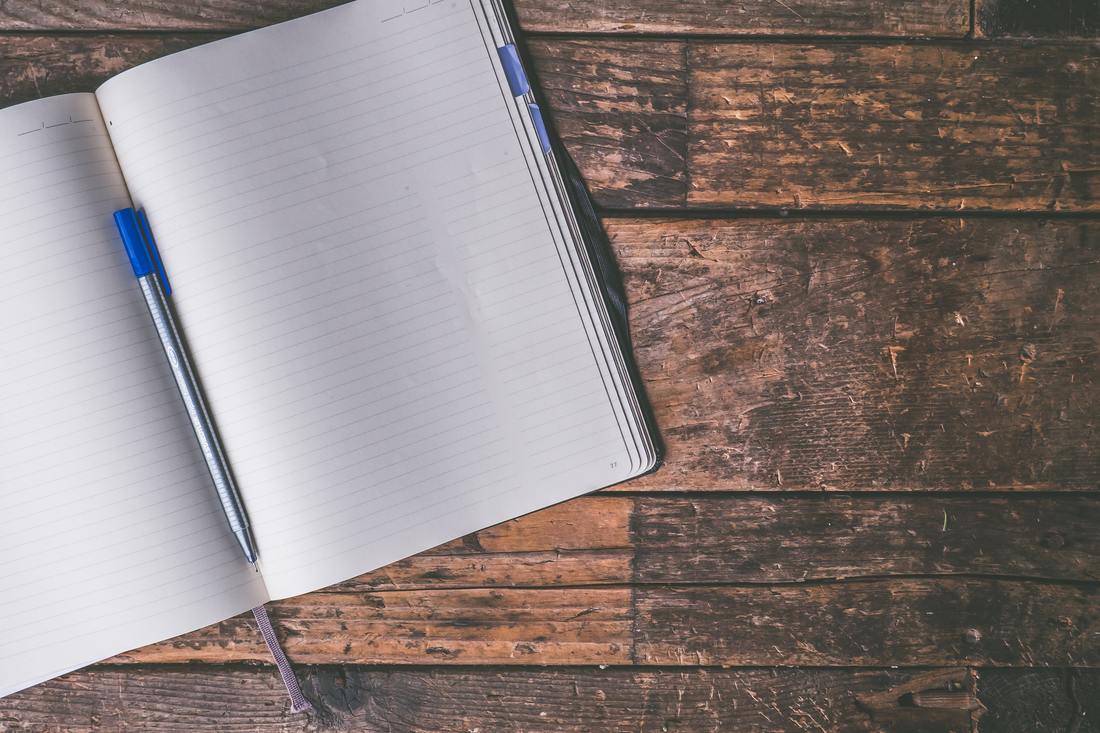
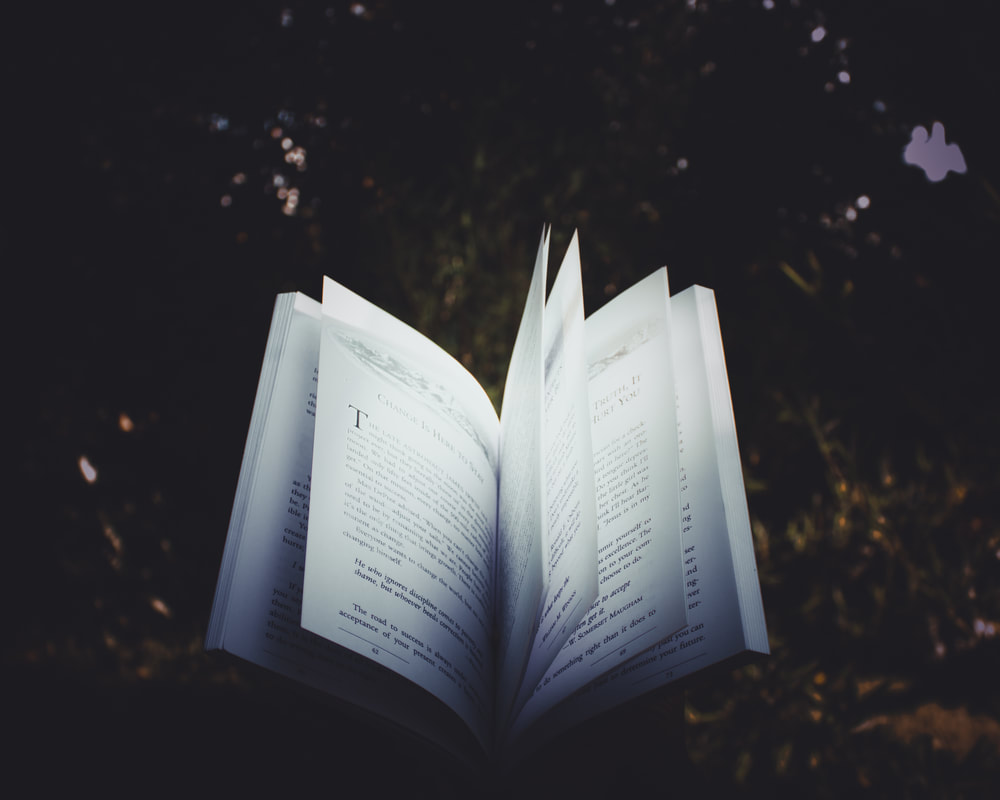
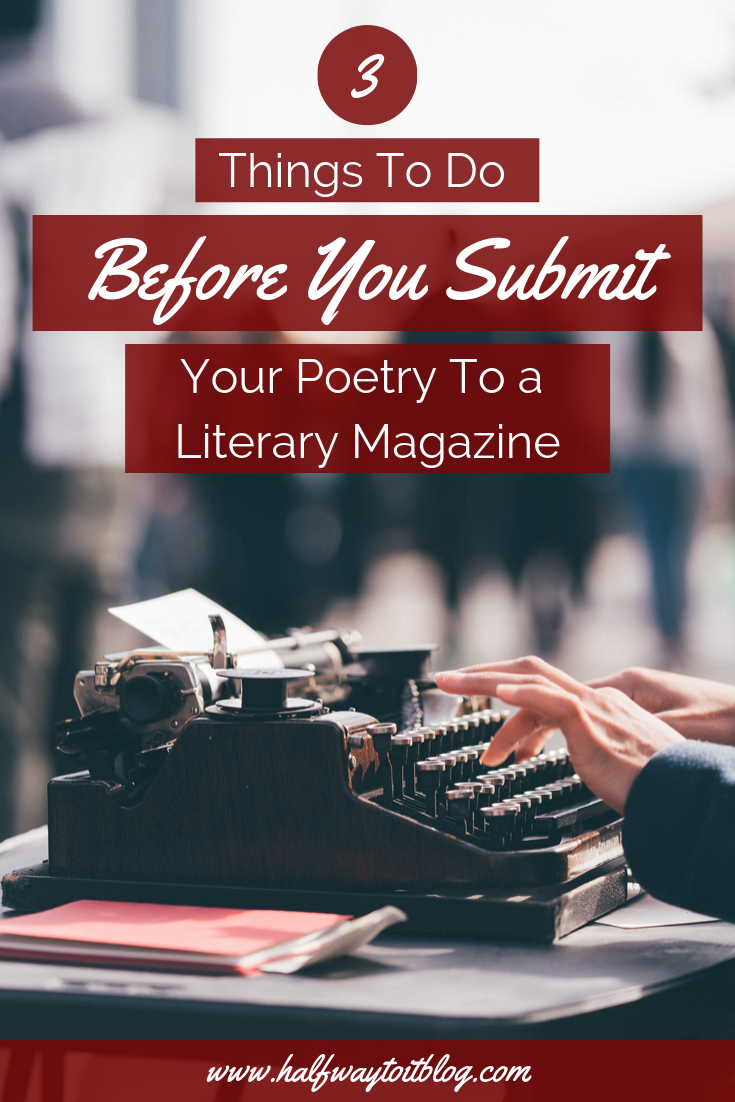

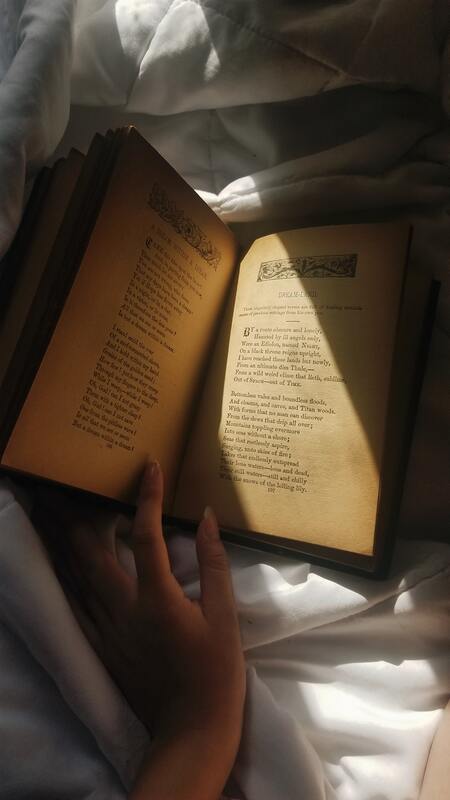


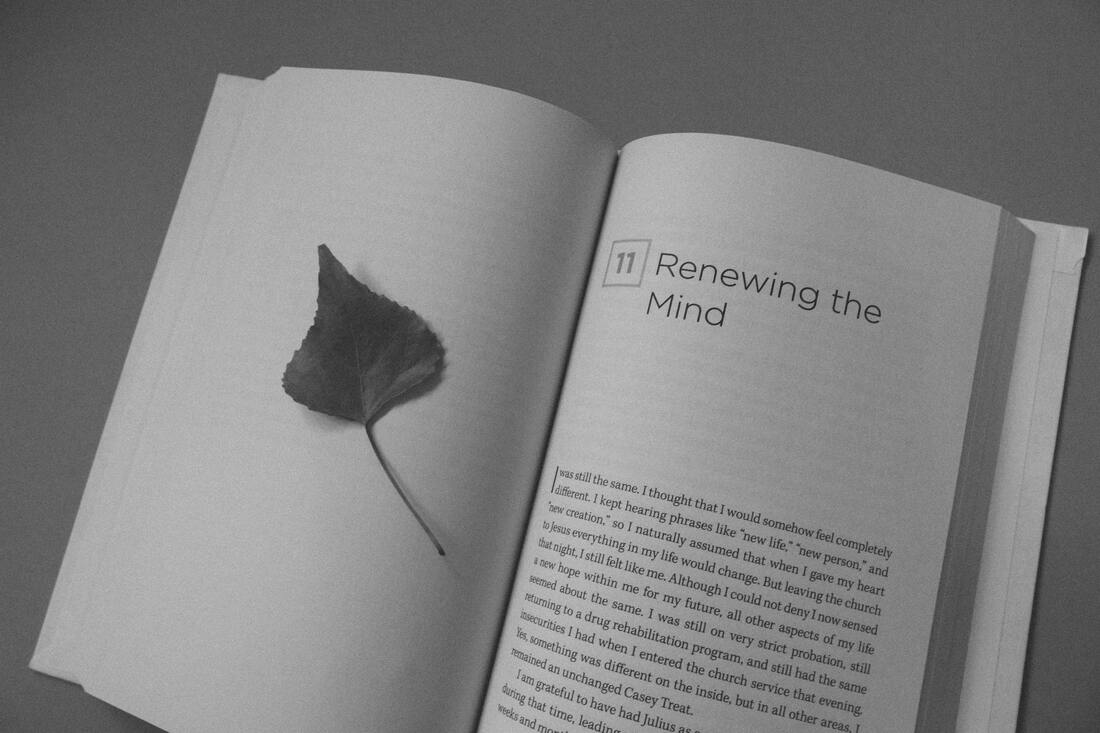
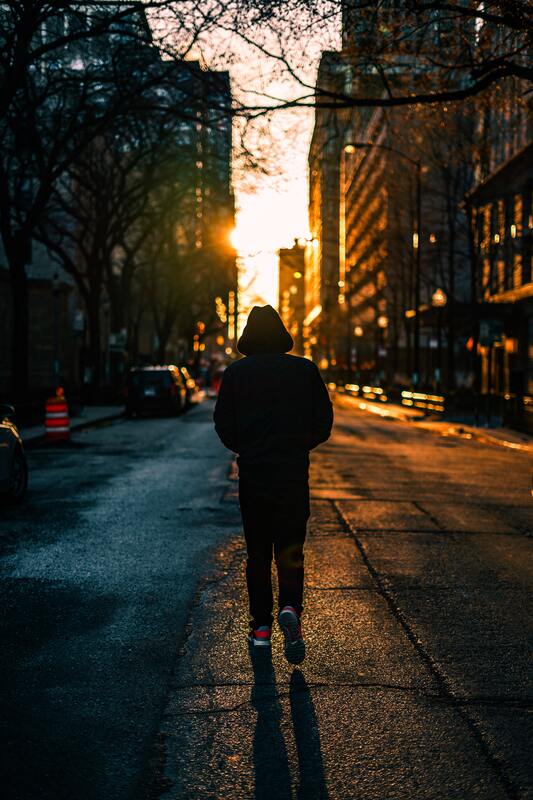



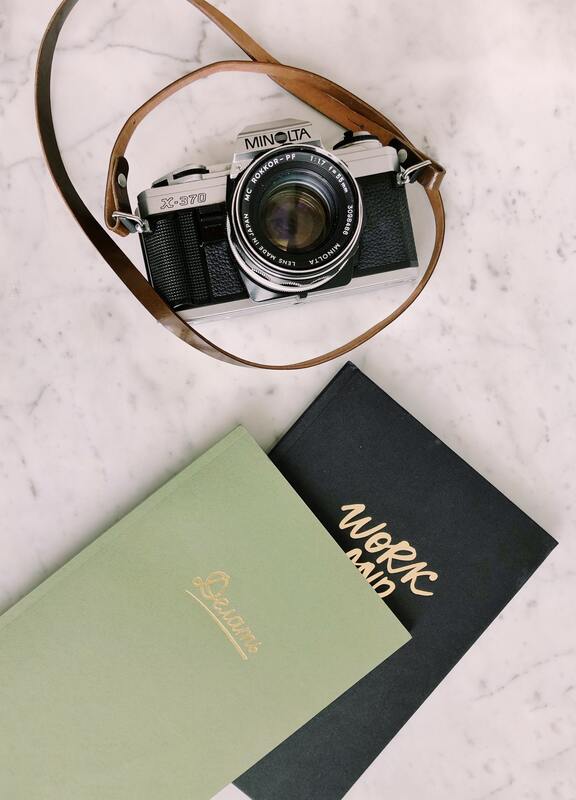

3/31/2018
0 Comments